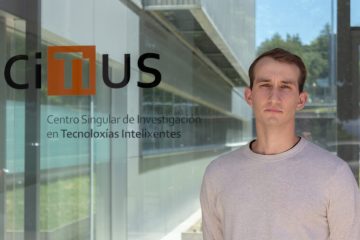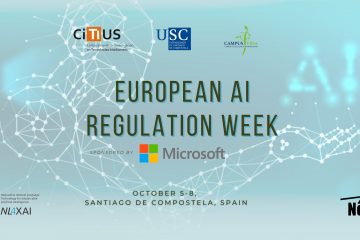A new event organised in the framework of the H2020 European research project NL4XAI next December, will focus on the issue of how the quality of algorithms in this area should be assessed in the emerging field of Explainable Artificial Intelligence (XAI).
A new international event held from 15 to 16 December in Utrecht (The Netherlands) will gather again professionals from academia and industry to discuss about how the quality of algorithms in a cutting-edge emerging research area known as Explainable Artificial Intelligence (XAI), a field of study which faces the challenge of making AI systems self-explanatory, should be assessed.
Scientists from different European universities in United Kingdom (Aberdeen), Ireland (Dublin) and The Netherlands (Tilburg, Utrecht), together with representatives from industry (such as Philips or Trivago), will share their experiences with PhD students in the framework of the European Training Network NL4XAI (Interactive Natural Language Technologies for Explainable Artificial Intelligence). A research project funded under the European Union’s Horizon 2020 programme, which is aimed to train the first generation of experts in the field of Explainable Artificial Intelligence along the European continent.
Training event on quality assessment
These 11 PhD students (also known as Early-Stage-Researchers, ESRs) are the core of the project, and will have to face the challenge of making Artificial Intelligence systems explain itself, to achieve a better use of these emerging techniques.
Crucially, along the event that will take place next month, the students will also be given hands on experience with the design of evaluation experiments. A central theme will be the widely reported experience in experimental sciences that experiments can be extremely difficult to replicate; for example, because crucial details are missing from the research articles in which the experiments are reported, or because of problems with the statistics.
Students will get experience identifying these problems in existing studies, learning to work in a way that will ensure the replicability of the evaluation studies they will conduct in the remainder of their PhD project. Registrations and further information of the event are available at the NL4XAI Training Days’ Official Website.
H2020 Training Network
NL4XAI is funded by the Horizon 2020 research and innovation programme, through a Marie Skłodowska-Curie grant, in the framework of the European Union’s bet for Explainable Artificial Intelligence. The network is coordinated by the research team at the Research Centre in Intelligent Technology of the University of Santiago de Compostela (CiTIUS-USC), headed by Senén Barro. NL4XAI is a joint academic-industry research network, that brings together 19 beneficiaries and partners from six different European countries (France, Malta, Poland, Spain, The Netherlands, and UK). The partners correspond to two national research
institutions (IIIA-CSIC, CNRS), ten universities (University of Aberdeen, University of Dundee, L-Universitá ta’ Malta, Delft University of Technology, Utrecht University, University of Twente, Warsaw University of Technology, Université de Lorraine, Universidade de Santiago de Compostela, Universitat Autonòma de Barcelona, Maastricht University) and six private companies (Indra, Accenture, Orange, Wizenoze, Arria, InfoSupport).
Contact
Centro Singular de Investigación en Tecnoloxías Intelixentes (CiTIUS) Universidade de Santiago de Compostela
Rúa Jenaro de la Fuente s/n Campus Vida, 15782 Santiago de Compostela, Spain
Phone: +34 881 816 400
E-mail: info@nl4xai.eu
www.nl4xai.eu
Twitter: @nl4xai
LinkedIn: NL4XAI



